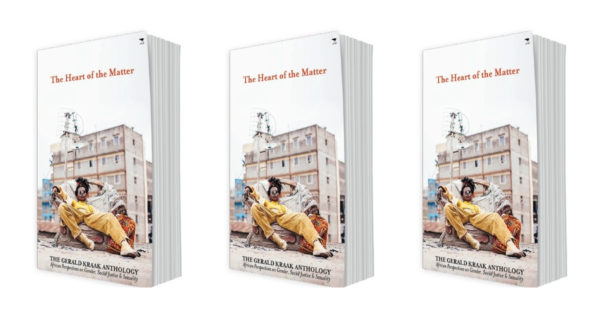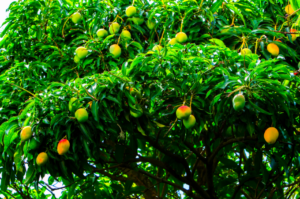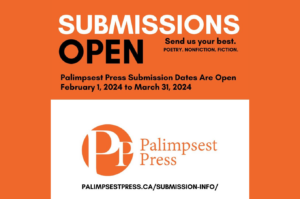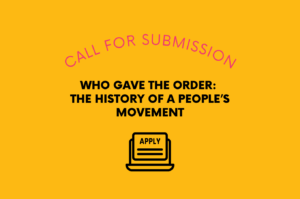
The third Gerald Kraak Prize, for 2019, was awarded to the Nigerian writer OluTimehin Adegbeye in May. The Heart of the Matter, the anthology compiling the shortlisted entries for the 2019 prize, was published by Jacana Media. Here is its Foreword, by Otosirieze Obi-Young, republished with permission from Jacana Literary Foundation and The Other Foundation.
FOREWORD TO THE HEART OF THE MATTER: THE GERALD KRAAK PRIZE ANTHOLOGY VOLUME III
When The Other Foundation and Jacana Literary Foundation announced the inaugural Gerald Kraak Prize and Anthology in 2016, in honour of the pioneering legacy of Gerald Kraak, it was unprecedented news for two reasons. Never before had there been an African prize rewarding art exploring gender, sexuality, and social justice. And never before had there been an African prize crossing and devoted to varied fields of expression—all kinds of writing and visual art confinable to the page. In the way they have been curated, individually and collectively, the three prize anthologies so far—Pride and Prejudice (2017), As You Like It (2018), and this, The Heart of the Matter—are an indelible statement not only of inclusivity, that the ones among us who have been Othered truly belong, but, crucially, of normalization, that our belonging must be complete and accepted as completely human.
On the African literary scene, where, given the paucity of financial support, every existing prize is a unique pillar, the Gerald Kraak Prize was always bound to become indispensable. By simply being, the Gerald Kraak Prize disrupts: it is helping disrupt the vast, deep hetero-masculine foundation of modern African literature and art, decentering long-held, long-unquestioned privileges.
The prize anthologies achieve this by running the gamut of storytelling: from searing creative nonfiction, autobiographical and journalistic, to powerfully imagined fiction, realist and speculative; from edible poetry, celebratory and haunting, to stunning photography, provocative and aesthetic. In their pages, bodies, skin colours, and desires are redeemed of reluctance, shame, and guilt, and resistance, nonconformity, and the simple celebration of life enthroned. In their nuanced, often unsettling explorations of sex, homelessness, poverty, violence, their arguments for Afro-modernity, their reinterpretations of gender dynamics, their re-presentations of skin colour, their repositioning of unconventionality, their interrogations of power, the prize anthologies are playing a leading role in visibilizing the varied African feminist and queer visions of a more just world, stabilizing the radicality that a simple portrayal of an Othered is.
Being invited to join the panel of judges is a distinct honour. I entered for the inaugural prize, and having that particular short story of mine shortlisted was a validation of the kind of fiction I want to write about being queer. And so the offer to work with Sisonke Msimang, Mark Gevisser, and Sylvia Tamale, warriors whose work I’d read about while still an undergraduate and have admired from afar, was a singular, enticing privilege. In our conversations, on phone and on email, in their dedication to presenting the best set of entries, the best collection possible, each brought their distinct recognition and understanding of not only gender, sexuality, and social justice but of storytelling as a whole, of writing and polemic in their entireties. The result, The Heart of the Matter, is an anthology that traverses the human condition in social settings—migration, motherhood, lonely masculinity, isolated but thriving femininity, intersexuality, erotic and familial love—while retaining sensitivity and warmth.
The two founding organisations, Jacana Literary Foundation and The Other Foundation, are doing major work in the Southern African subcontinent. While Jacana Literary Foundation has extended Jacana Media’s reach in identifying and publishing underrepresented voices and subjects that allow for larger bibliodiversity, The Other Foundation is inaugurating a cultural shift in which local LGBTQ communities could become independent of international donors. Driven as both are by that discomfort and care that animates all true activists, their decision to unite and extend their respective works into the arena of literary prizes and curation, and in doing this extend the beautiful, embracing vision of Gerald Kraak’s life, opens new paths for human rights activism and organization all over the African continent, providing new self-sustaining, conversation-pushing ways to think about and enhance the visibility of marginalized groups. Theirs is a mission of hope and responsibility, a vision of freedom. How powerful, the change it has wrought in this corner of the world.
Otosirieze Obi-Young,
Deputy Editor, Brittle Paper.









COMMENTS -
Reader Interactions